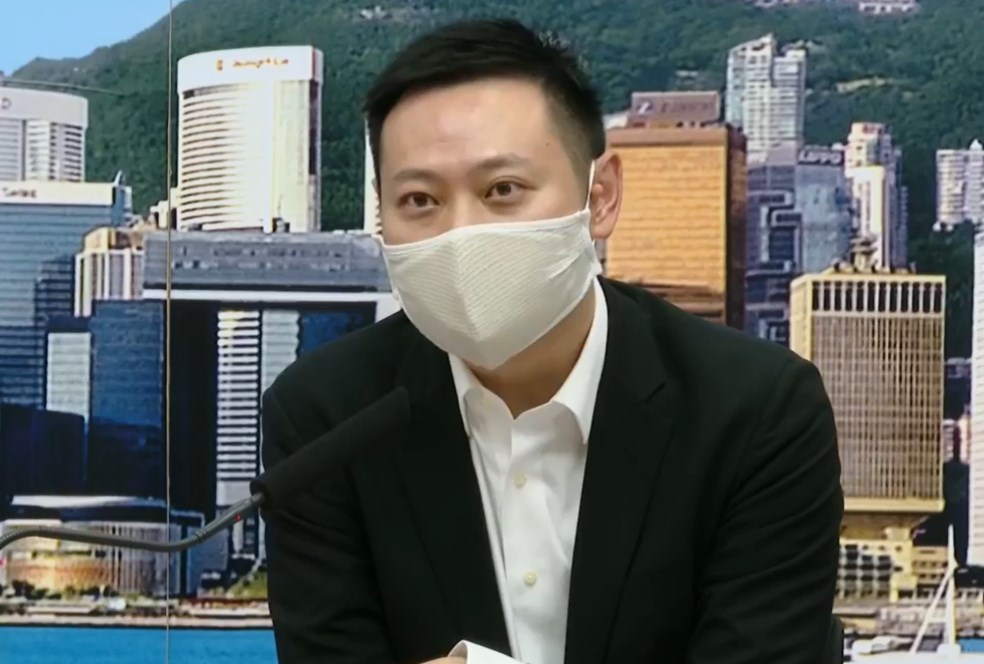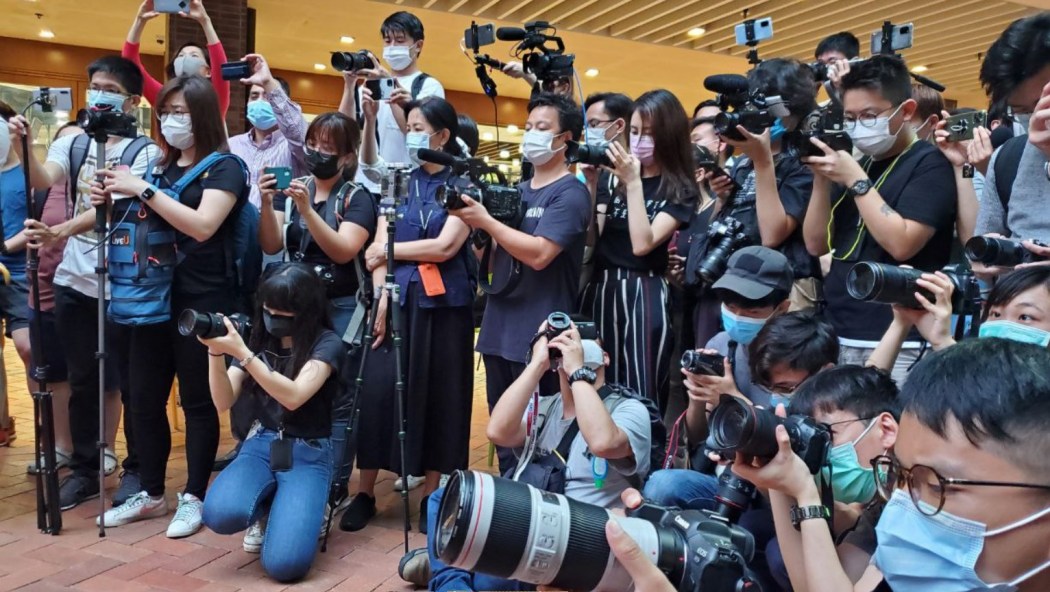The Hong Kong government is mulling plans to implement a “fake news” law to regulate disinformation on the internet, Secretary for Home Affairs Caspar Tsui told the Legislative Council (LegCo) on Wednesday. He said the government had a duty to “plug loopholes” in the city’s legislation.
Tsui’s comments came in response to lawmaker Gary Chan’s question about how the government intended to combat misinformation after a pro-Beijing media outlet reported on injuries suffered by a first-aider during the 2019 protests. The report suggested that the Hospital Authority had exaggerated the injuries and spread “lies” – an accusation it denied.

Tsui told the legislature that the government was conducting a study on how foreign governments legislated against fake news before deciding on changes to Hong Kong law.
“The administration will be exhausting all administrative and legal means to deal with the spread of such rumours,” he said. “I fully agree that, with false information, it can cause a lot of public security hazards and the implications can be far-reaching.”
The secretary said the government will do whatever was necessary. “Whatever can be done, will be done,” referring to the gazetting of the anti-doxxing bill last Thursday.
He added that the amendments are unlikely to be tabled within the legislature’s current term but the government will be “pushing full steam ahead,” warning the public to be “vigilant” when using the internet and to “not be misled by any rumours.”

Also speaking in LegCo on Wednesday, Secretary for Security Chris Tang called on the public to “use their discernment” when online and to “use the internet lawfully and responsibly,” saying the Security Bureau will use all administrative and legal means to “crack down” on “seditious views and false information.”
‘Legal vacuum’
The secretary’s comments came as pro-Beijing lawmakers threw their support behind a motion introduced by lawmaker Elizabeth Quat to legislate against the spread of online disinformation and to target content that incites hatred against the government.
Quat told the legislature that the city needed to fill a “legal vacuum” to combat online information that did not amount to national security offences but was still capable of “radicalising” the public.

“Disinformation is still with us. Certain people and groups are still trying to use the loopholes to flood the internet with disinformation against the government,” the DAB lawmaker said, calling for the need of a “clear legislative framework so the public can know the bottom line.”
She also cited the need to protect “vulnerable” members of the public from false information and to ensure public safety.
Quat’s motion was amended by lawmaker Aron Kwok, who proposed three additional measures to combat fake news, including educating the public on “media literacy” and establishing a database to help the public identify false information.
He also called on the government to subsidise studies on how to use artificial intelligence to help authorities screen social media platforms for “fake news.”
‘Brainwashing’
Quat’s motion was met with widespread support by the city’s pro-Beijing dominated legislature.
Business and Professionals Alliance for Hong Kong’s Christopher Cheung said fake news should not be “used as a tool to brainwash” the public, while the Federation of Trade Union’s Alice Mak called on the government to “suppress those with ulterior motives to spread disinformation online.”

Lawmaker Priscilla Leung said the law will not affect press freedom as long as journalists were “reasonable.”
Meanwhile, Civic Passions’ Cheng Chung-tai – one of only two lawmakers who are not of the pro-establishment camp – questioned why the law was necessary, saying it will allow the government to “decide what is true and what is false.”
“If we have to implement this legislation… are we saying that the Hong Kong people don’t have the wisdom to decide what is true or not?” he asked.
‘Sword over journalists’ heads’
Chair of the Hong Kong Journalist’s Association Ronson Chan told HKFP a “fake news” law would be an additional concern for reporters.

“There is no need to add one more weapon or sword over journalists’ heads,” Chan said, referring to existing legislation, including the Beijing-imposed national security law. He said there were already “powerful weapons” authorities could use to clamp down on falsities.
He also said a “fake news” law would be unviable as it would be difficult to determine whether reporters or sources should be prosecuted for false information.
“It’s not easy to distinguish or clarify who should be responsible for fake news,” he said.
Support HKFP | Policies & Ethics | Error/typo? | Contact Us | Newsletter | Transparency & Annual Report | Apps
Help safeguard press freedom & keep HKFP free for all readers by supporting our team
























